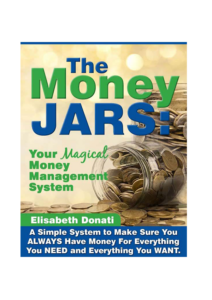When we travel, we tend to notice things in the context of our lives. Here are some examples:
My boyfriend is in the carpet repair niche, so everywhere we go, he looks for, and critiques, carpet installations and notices carpet that needs to be fixed.
If you’re in the bakery business, you spot bakeries and judge their baked goods based on what YOU bake.
If you own a nice fancy red car, you probably notice every time one passes you on the road.
This is often referred to as RAS or Reticular Activation (System) and it was introduced to the world by Tony Robbins. It’s related to, but not the same as, the part of the brain called the Reticular Activating System, the part of our mammalian brain involved with arousal and motivation.
Reticular Activation, in Robbins-speak, has to do with the way we filter information and in particular, the way we decide what is important to us and what isn’t.
OK, let’s go back to traveling. We tend to spend a lot of our time filtering the information, experiences, and especially our thoughts related to where we’re traveling, through who we are, what we do, our values, priorities, beliefs, previous experiences, etc.
The simple fact is…we can’t NOT do this. We’re wired to judge and question…it’s truly a survival mechanism at it’s primalness as it helps us determine what is safe and what is not so safe.
The following pondering is based on my recent travel experience to the island of Dominica and of course, it is filtered through the responsibility, self-reliance, financial freedom context that I currently live and work in. Read on…you’ll see what I mean.
Day One – Arriving on the Island of Dominica
After going on my annual internet marketing cruise where there is always an overabundance of food, and a few days back in Tortola where I spend six weeks last year, my boyfriend, Steve, and I set off to explore a brand new island called Dominica.
We got to the island, were picked up by a friend’s nephew at the airport who took us to the house where we would be staying in a small village (that’s what they call little towns) called Marigot. The house was owned by this same friend’s cousin who lived out of the country most of the time.
The house was only a few miles from the airport and when we arrived, we were greeted with a locked gate which had to be opened so that we could drive in and unload.
We were shown the house, the detached (and locked) kitchen which appeared to have everything we’d need and met a sweet man, Ian, who would be showing us around and getting us acclimated.
The nephew drove away, leaving us in Ian’s capable hands, we unpacked and looked around a bit and decided it was time to find groceries, as my boyfriend and I prefer cooking our own food to eating out. In Marigot, eating out isn’t really even an option anyway.
Ian led us, on foot, up a fairly steep hill and took us to a shop, a little hole in the wall place that had eggs, milk, a few canned goods and some other miscellaneous items. We asked Ian if there was such a thing as a grocery story in the area. He said to follow him.
When we arrived a few minutes later at his idea of a grocery store, we knew we were in for a little bit of an eating challenge. We live on fresh fruits and lots of vegetables and the store only had garlic and onions…you get the picture.
They said we’d need to go to Portsmouth in order to find veggies so we rented a car (a completely different tale) and drove a third of the way around the island to what they call the Second Town because it’s their second capital. The actual capital is in Roseau. Here’s a little map if you want to follow along:-).
We got to Portmouth and found an IGA store, which I recognized from the US. We were able to find a few things we could eat (albeit incredibly expensive) and checked out. We asked someone about fresh veggies and they directed us ‘down town’ to what we’d call a little farmer’s market.
We went and found some lettuce and tomatoes and a couple of other things and made the curvy, nerve-wracking (mine) drive home.
End of Day One.
Day Two – Rest and Relinquishing Expectations
Day two started out with me realizing I was exhausted and just needed to rest…so I did. I took a few naps, read a bit, ate a bit and finally, mid-afternoon, decided to venture down to the beach via a fairly steep trail down the hill behind the house we were renting. Steve had gone with Ian a couple of hours earlier another way to the beach and wasn’t back. I went looking for them now that I was a rested.
I walked down the trail to the beach and was greeted by something that turned my stomach and made me realize I had made a choice that wasn’t going to bring me what I craved most…three weeks swimming in the Caribbean. I was greeted by a large area filled with garbage.
Needless to say, I was stopped in my tracks. It wasn’t just a few bottles or cans I could have picked up and put in a garbage bag. It was a HUGE area right on the beach up to the water. I contained my stomach and walked back to the house in sadness.
Upon asking Ian about it, he said that there are two main ditches (part of the car tale) that run from the top of both sides of the village up high down to the ocean. Heavy sigh…
At this point, both Steve and I had been questioning the location of our lodging and my initial choice to visit this island. We rested the remainder of the day, pondering other choices.
Day Three – Exploration, Rain Forest and The Emerald Pool
We spent day three driving around three-quarters of the island. The best part of our entire stay was finding The Emerald Pool…a place where a river comes tumbling down over a hill and falls into this beautiful pool.
We spent quite a lot of time there enjoying the rain forest, the people who tended the place and the water everywhere. It was one of the sweetest moments of our trip.
We moved on, stopped for some coconut water, finally ending up in Rosea where we found a larger store (but still little produce) and after a veryyyyy long drive, ended up back at the house after dark. We did find a roadside stand where we were able to get more grapefruits, some bananas and even some spinach!
By the time we got home, I was ready not to ever get in a car on that island again. I drove my boyfriend nuts (though he was a little nuts before this day:) and he was completely fine with my resolve!
Day Four – Leaving
That night, after spending time talking about options, knowing we weren’t prepared to pay upwards of $150-$200 a night for a nice hotel in a cleaner spot, we went to bed a little dejected and for me, very disappointed, feeling trapped in a place I knew I didn’t want to spend two more weeks, let alone two more days.
Steve woke up and said, “Let’s go home.”
It was more a statement about his desire to take care of me than anything and I am always eternally grateful to be with a man who is such a fabulous provider and protector of the ones he loves. Thank you, Steve.
We spent a few hours that day changing flights, answering questions about why we were leaving, packed and left the next day. Though it took us a few days to get home, I can tell you from the center of my being, the minute we left that island and the plane lifted off, the sadness and depression I had felt lifted as well.
The Financial Ponderings of Dominica’s People and Stated Famine
The day before we left, we went to their credit union to pay for our rental house. We were told by the lady (another relative) in charge of taking payments that the credit union’s funds were way down because the island was experiencing economic problems and even famine.
Wikipedia defines famine as a widespread scarcity of food, caused by several factors including crop failure, overpopulation, or government policies.
But I contend it can be, and is often, caused by something far more serious…a belief about life that is so deep that it takes something truly profound to change it.
After spending just four days on the island, what I saw and experienced was a hopelessness and lethargicness of the locals that was both causing their financial problems and perpetuating it. Think about it this way…
Let’s say you’re the average tourist with money and a desire to see a beautiful place, like Dominica. Most of us are more inclined to spend our hard-earned money in a place that is clean, safe and offers us at least a little bit of what we need (which is subjective) to be comfortable on our little journey. That includes an environment (air, water, land) that we perceive to be safe and clean to be in and decent food and water to eat and drink.
After learning that the islanders were experiencing famine, which was not evident by the size of the women (90% of those over 30ish were very overweight…but not the men?), my boyfriend and I couldn’t understand several things:
- If you know that some, if not much, of your island’s economy is dependent on tourist dollars, would you not clean it up so that the beaches, villages and other areas were clean and inviting?
- If you lived in an area where practically anything grows with great soil and plenty of water, would you not grow most of your own food, at least enough to feed your family?
- If you had any land at all, wouldn’t you attempt to grow food to sell to the local grocery stores so that locals and tourists alike had great and plentiful foods to choose from?
We had these thoughts but then remembered something HUGE. Ian, our caretaker at the house, had told us that the islanders were not that far removed from being freed from slavery and many of them still lived with the slavery mindset.
My initial, uneducated, reaction was one of questioning why they didn’t do more to make their lives better but then I remembered one of my favorite, and quite profound personal sayings…
You can’t get a chicken to think like a duck.
What this means is that a chicken is a chicken and a duck is a duck (obviously:-). In a deeper sense, it means that the chicken sees things through it’s chickenness and the duck through its duckness and the freed slavery mentality can’t see (literally) the way out of its situation because it doesn’t have a freedom, improve oneself mentality through which to think.
(Note: I took the following from a website where I found exactly what I experienced on the island: http://www.outcrybookreview.com/MindSlave.htm.)
As a slave, man is set up to believe that his master is in charge of taking care of all of his needs. (Sound familiar?). He becomes dependent on this person for all things and even when he is eventually ‘physically’ free to take care of his own needs, improve things, etc., he can’t see to do it because he is still dependent on ‘them’ to provide it, change it, make it happen, etc.
So where my boyfriend and I saw opportunity after opportunity to change the way they were doing things, improve their situations, make money from selling goods to tourists, even improving the chances that tourists would come to the island in the first place, they didn’t see it…they couldn’t.
We saw so many people, young and not so young, just sitting amongst the garbage and projects left undone, in ruin…what was disgusting and unacceptable to us seemed normal to them.
Now I’m not suggesting that we (Americans) should go into areas, civilizing the people there or even suggesting that other cultures do it our way…I’m far from that view to be honest.
But the simple fact that in my opinion there were so many things the islanders could do for themselves to improve their basic living conditions, and they couldn’t see to do them, will always make me realize how grateful I am to have been born in the United States and to have lived the life I have lived so far with the experiences, skills, knowledge and beliefs that I have in my life.
The bottom line question for you is this:
Where in your own life do you think like a chicken when thinking like a duck might get you where you want to be in life?
Quack, Quack.
p.s. I am in no way inferring that chickens are inferior but how often do YOU see duck readily available in the store or on a menu? I’m just saying:-).







Like the analogy – travel certainly opens your eyes on loads of topics, that’s why we should all do it more and see how the the other half live so we have more perspective
Yes, it really does.